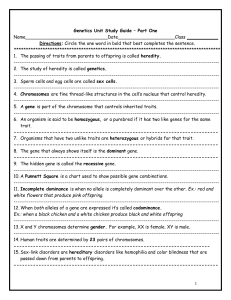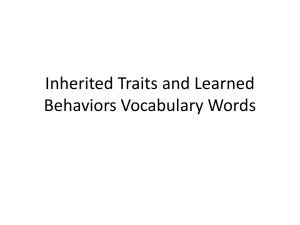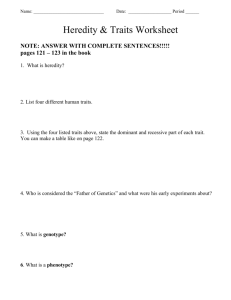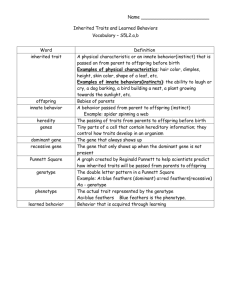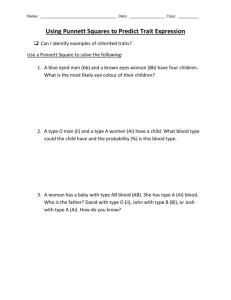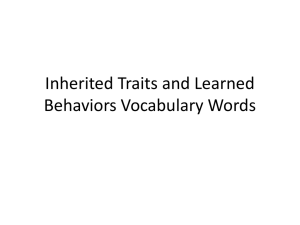GENETICS UNIT STUDY GUIDE
advertisement
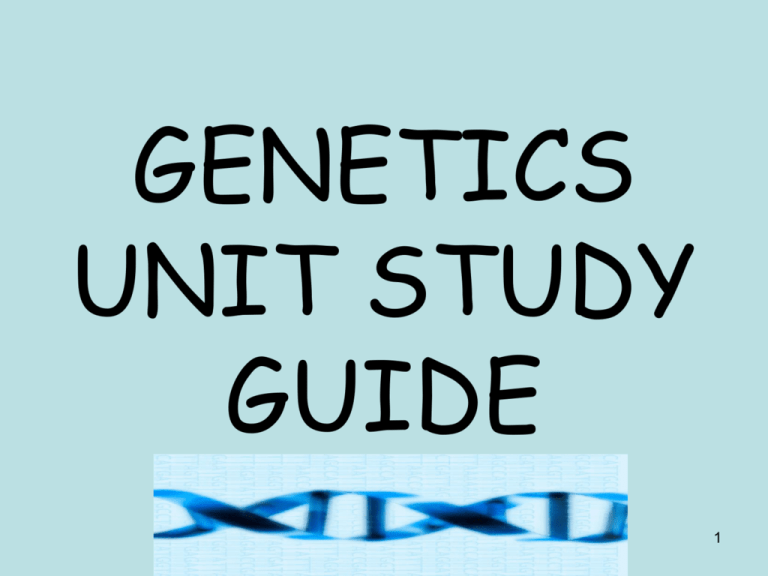
GENETICS UNIT STUDY GUIDE 1 •The passing of traits from parents to offspring is known as heredity. 2 •The study of heredity is called genetics. 3 Sperm cells and egg cells are called sex cells. 4 •Chromosomes are fine thread-like structures in the cell’s nucleus that control heredity. 5 •A gene is part of the chromosome that controls inherited traits. 6 •An organism is said to be homozygous, or a purebred if it has two like genes for the same trait. 7 •Organisms that have two unlike traits are heterozygous or hybrids for that trait. 8 •The gene that always shows itself is the dominant gene. 9 •The hidden gene is called the recessive gene. 10 •A Punnett square is a chart used to show possible gene combinations. 11 •Incomplete dominance is when no allele is completely dominant over the other. •Ex.: red and white flowers that produce pink offspring. 12 • When both alleles of a gene are expressed it’s called codominance. • Ex.: when a black chicken and a white chicken produce black and white offspring 13 •X and Y chromosomes determine gender. For example, XX is female. XY is male. 14 •Human traits are determined by 23 pairs of chromosomes. 15 •Sex-link disorders are hereditary disorders like hemophilia and color blindness that are passed down from parents to offspring. 16 • Women who have one normal gene and one gene for a sex-linked disorder are said to be carriers of the disorder. 17 • Scientists study the traits of past generations to predict the traits of future offspring. One way they do this is by making a pedigree which is a chart similar to a family tree. 18 •A disease that is caused by an abnormal gene passed down from a parent is called an inherited disease. 19 • Mating organisms to produce offspring with certain traits is called controlled breeding. 20 • Today, new organisms can be made in a laboratory and an organism’s DNA may be changed. The methods used to produce new forms of DNA are called genetic engineering. 21
